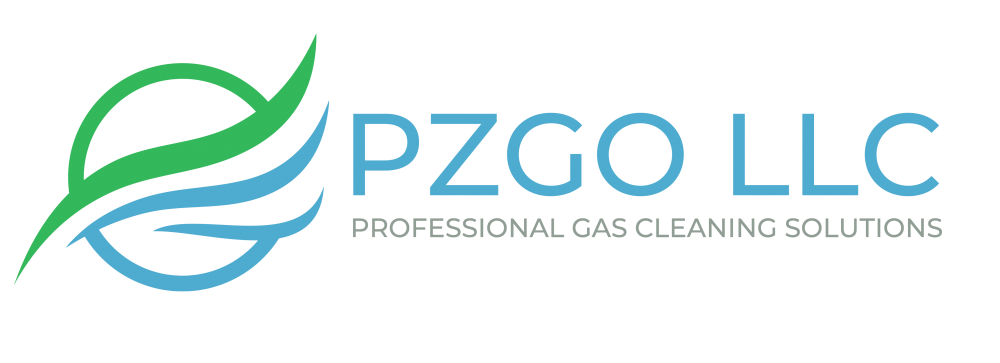Dry and wet chemical-type equipment for air purification, deodorization and gas cleaning / filtration in chemical industry
- Trapping gaseous and mechanical impurities
- Capture of hydrocarbon waste
- Gas filtration equipment for trapping hydrocarbon waste (gases and aerosols)
- Neutralization of acids and alkalis
- VOC (ketones, alcohols / spirits and esters) catching
- Design, manufacture, delivery and commissioning of air- and gas-filtration equipment in Europe and Asia
The manufacturer of gas-cleaning equipment offers to individually design, produce, deliver and put into operation acid / caustic scrubber machines, reagent-type chemical absorber units, as well as ceramic, silica gel and carbon adsorber columns for the chemical industry.
Contact us or request a professional consultation
Trapping harmful and undesirable gaseous and mechanical impurities
Chemistry is one of the fundamental sciences of modern civilization. Every single product of a technogenic society, to one degree or another, undergoes chemical treatment. This applies to clothing, cars, furniture, electronics, and even food.
Of course, there are not enough thousands of pages to describe all possible chemical processes and, especially, by-products arising as a result of these operations.
Among the most common gaseous and aerosol pollutants emitting into atmoshere by chamical industry are: organic solvents (acetone), amines, aldehydes, chlorine and its derivatives, nitrogen oxides, hydrogen cyanide, fluorides, sulfur compounds (sulfur dioxide, hydrogen sulfide, carbon disulfide), organometallic compounds, phosphorus compounds, mercury, and many others.
However, pollutants can be classified according to several basic properties, which greatly facilitates their processing. In the framework of the professional activity of our company, gaseous and fine mechanical inclusions, often going in tandem, are of interest.
Hydrocarbon waste
One of the largest groups of organic chemical compounds used in the chemical industry is hydrocarbons. Having different degrees of danger at normal temperature, almost all hydrocarbons, in whole or in part, are converted to hazardous compounds when heated or burned.
Among other things, during evaporation, heavy and dense aerosols can form. In an active state, such aerosols and vapors can be in the atmosphere for months, causing significant harm to human health and the environment.

Horizontal packed-bed chemisorber produced at PZGO LLC demonstrates near 100% efficiency while trapping complex mechanical-gaseous pollutants (including those of high temperature)
The combustion / thermal dissociation of hydrocarbons also produces a significant amount of fine soot and ash, which are poorly captured by fiber and nonwoven hose / bag filters.
Gas filtration equipment for trapping hydrocarbon waste of gaseous and gas-mechanical nature
High efficiency in trapping hydrocarbons containing mechanical impurities, show scrubber machines with a fluidized bed. If a chemically active gas or air stream is slightly contaminated with mechanical material, then fixed bed absorbers are an ideal choice for an industrial site. If the gas phase has low (or zero) humidity and is free from mechanical impurities, the maximum gas cleaning efficiency is achieved by using dry adsorption towers.
Industrial-scale acids and alkalis neutralization
Another group of substances commonly used in many industrial chemical processes are acids and alkalis. Due to their high biological activity, these compounds need particularly careful handling.
An important feature of acidic and basic-type compounds is the ability to neutralize each other with the subsequent formation of salts and water. It is this approach that ensures maximum safety and efficiency of gas cleaning equipment when working with acidic and caustic gases, aerosols and vapors.
Thus, if the medium to be purified has an inclination into the acidic pH zone, then an alkaline solution is used as the sprayed reagent, and vice versa. Depending on the conditions, the use of fixed-bed wet absorbers or fluidized bed scrubbers is rational.

PP-bodied stationary-bed-type chemical scrubber for acidic, alkaline, halogenous and other aggressive compounds neutralization (related equipment – pumping units, fans, valving – is also made from chemically resistant materials)
Nitric, sulfuric, hydrochloric, acetic, hydrogen fluoride, hydrocyanic and phosphoric acids, as well as caustic soda and caustic potassium should be distinguished among the most common industrial acids and alkalis.
As our own experiments show, the most rational casing / lining / floating-bed material for acid scrubber machines and industrial absorber systems is polypropylene. If the chemical resistance of polypropylene is not enough, we are ready to manufacture devices from stainless steel, fiberglass, fluoroplastic or titanium.

In addition to gas cleaning devices, PZGO LLC manufactures downstream neutralization stations for wastewater and liquid slurry with a pH value beyond the limits of normal acidity
Volatile alcohols (alcanols), ketones and esters
Alcohols, ketones and esters are substances that can be both target products of chemical industry and compounds involved in reactions as an intermediate.
On top of that, both alcanols, ketones and ester aerosols / air suspensions have a very high explosion hazard, which is directly related to the safety of workers in chemical plants. However, with proper approach to gas cleaning procedures, the above substances do not pose any danger.
The greatest efficiency in capturing active volatile compounds is demonstrated by wet reagent-type absorbers and dry catalytic adsorbers (which are often installed in parallel in a multi-stage gas cleaning units).

Adsorption modules manufactured at our factory do not reduce their efficiency even at low temperatures
A wide choice of dry adsorbents (activated carbon, silica gel, complex porous polymers) and liquid absorbents, coupled with the correct design of equipment, allows to achieve cleaning efficiency, approaching 100%.
As a side bonus, the ultimate efficiency of the apparatuses ensures the almost complete destruction of unpleasant chemical odors.
Design and manufacture of gas cleaning and air purification equipment for chemical factories in Europe and Asia
To discuss individual conditions regarding the engineering / design and manufacture of chemical scrubbers, wet absorbers and catalytic adsorption columns, please send us an email or fill out a Customer’s questionnaire.
We are also ready to carry out the fast delivery and seamless local commissioning of air purification facilities in Europe and Asia, using the existing or creating a new gas cleaning infrastructure.

PZGO LLC – breathe with ease!
